The A's Last Game in Oakland: Live Updates
Follow live coverage from KQED reporters and photographers of the A's final game at the Oakland Coliseum.
After A’s historic win, fans aren’t ready to say goodbye
As tens of thousands of fans made their way back to the parking lot and BART station, many stayed behind to take in one last moment at the Coliseum after the A’s historic win in their final home game.
With tears in his eyes, Gilbert Bañuelos III recalled being an Oakland sports fan his entire life.
“It’s a lot of emotions right now because I was fortunate to be here for the last Raiders game at the Coliseum, and now I’m here for the last Oakland A’s game,” Bañuelos said. “It just sucks, you know, this is it for here. I could travel to go see them, but this is home. And now it’s just a memory and a legend, a legacy that will never be forgotten.”
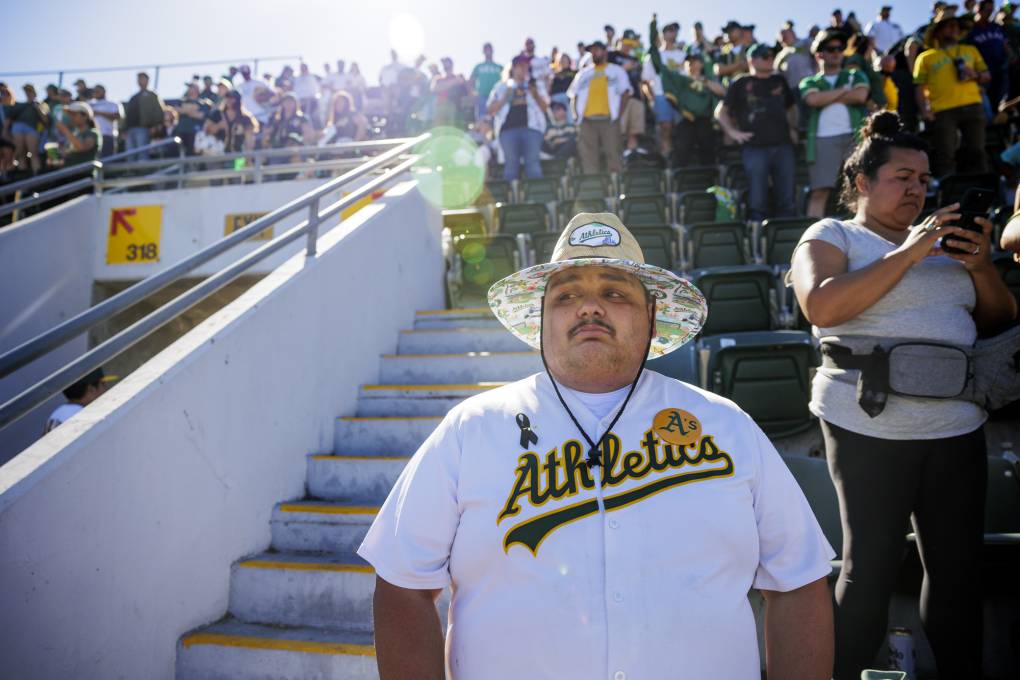
For Bañuelos and other fans clinging to the final hour, ties to the A’s are about much more than home runs and strikeouts, but a family and a community of friends.
“My uncle was a huge A’s fan. He’s the one that really got me attached to them,” Bañuelos said. “I want to make a big shout out to my uncle Sal, may he rest in peace. I wish you were here. I’m just glad I had the opportunity to see it. This one’s for you, uncle — they won.”
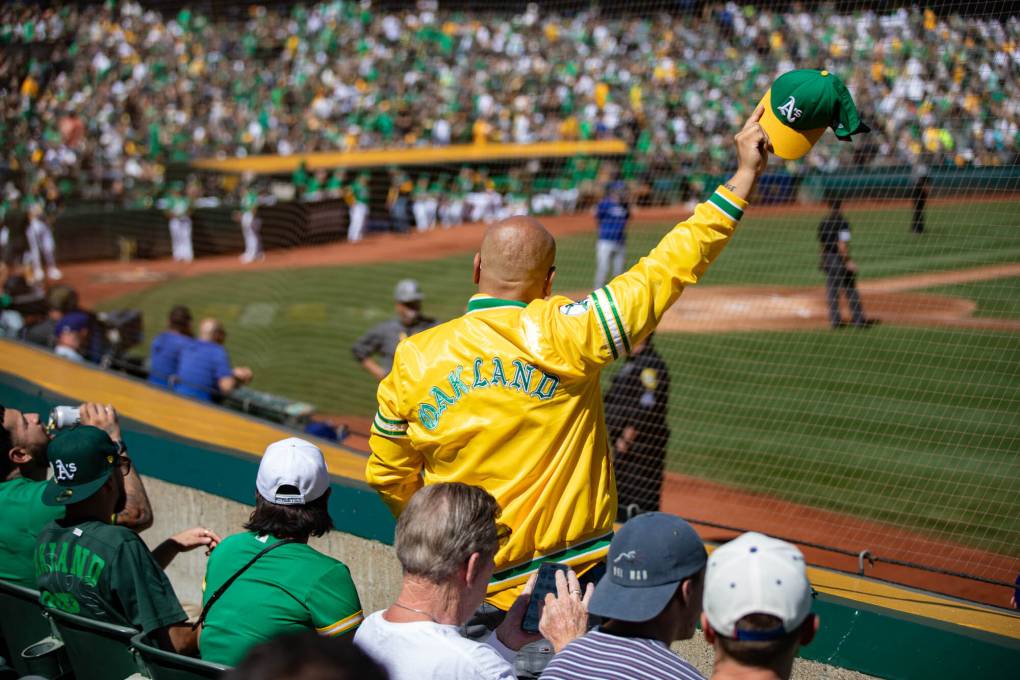
Jim and Gayle Burleigh were lingering after the game to savor the last time at the stadium also.
“It’s very emotional, it’s very sad. We took our boys here as they grew up,” Jim said.
“The characters that made this team and made our memories, I am gutted right now,” Gayle mustered through tears. “I wish we could have figured out a way to have them stay.”
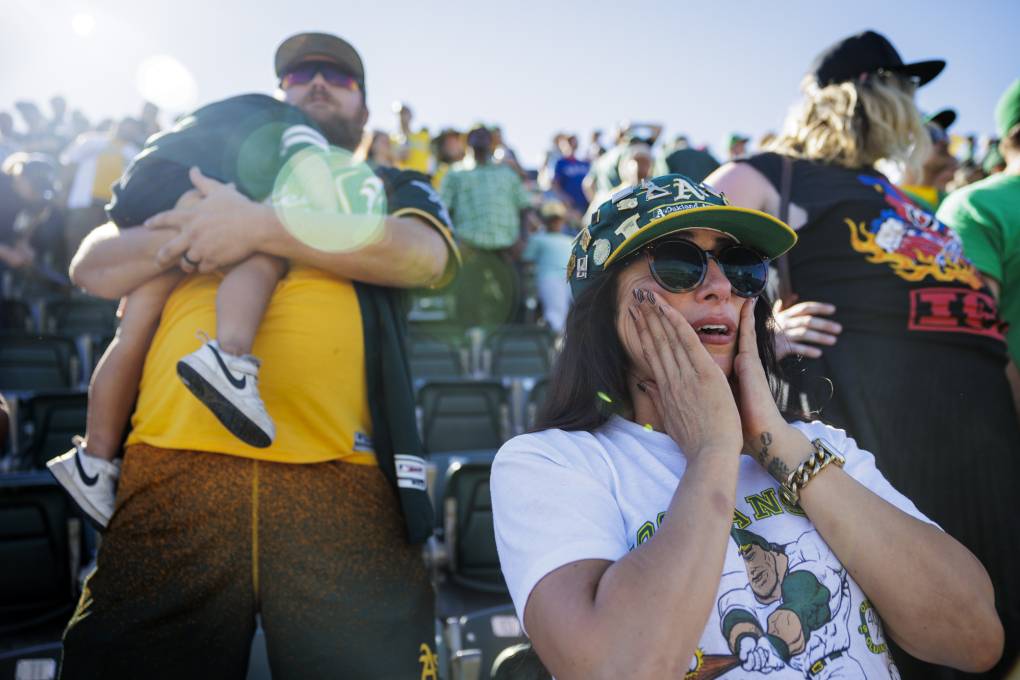
Jenneane Rocha, 44, remembers coming to games at the Coliseum as young as age 6.
“I came here with my dad all the time and he passed away, so I went with a friend and her dad, and he also passed away,” she said of her emotional ties to the team. “If you just want to see good baseball, Oakland fans are the kindest and the sweetest.”
Krazy George Henderson helps give the Coliseum its final wave
The Oakland Coliseum is packed with history — including laying claim to the origin of “The Wave,” where members of a crowd stand up and raise their arms in unison across a stadium.
Krazy George Henderson, 80, is credited for inventing The Wave in 1979. The diehard fan worked as a professional cheerleader for 57 years and started cheering for the A’s in 1978.
Since then, The Wave has not only become common at sports arenas around the world, but it’s also become a particular point of tension among some Bay Area baseball fans. As the move grew popular, fans of other teams picked it up, like the Dodgers — a longtime rival of the San Francisco Giants. To this day, The Wave will rarely take off at Giants games.
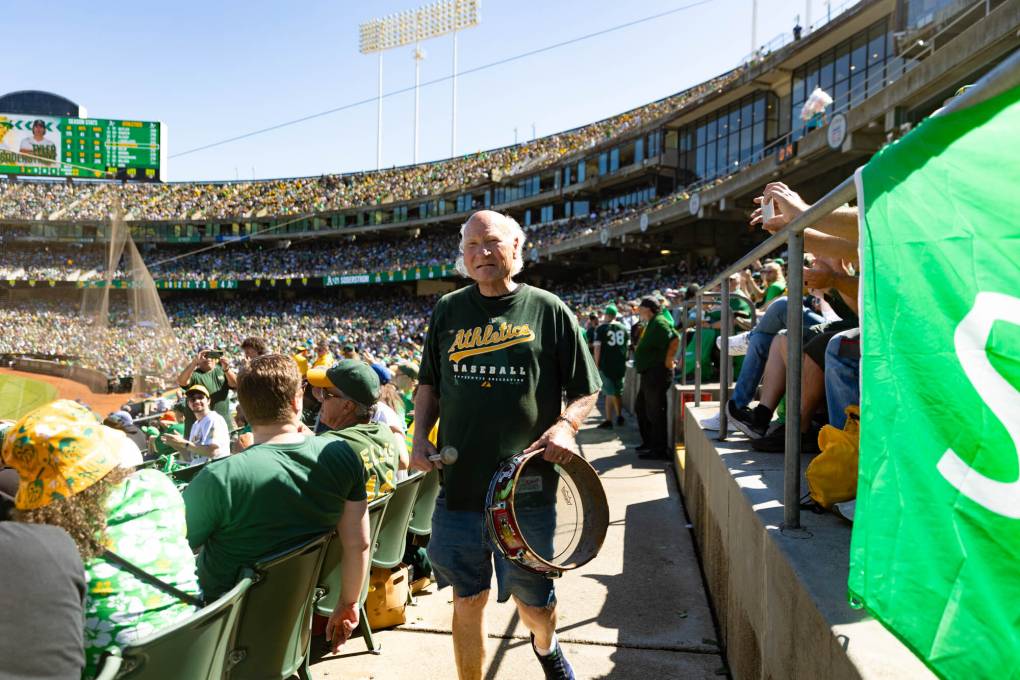
While there is some dispute about where The Wave really started, Henderson stands by his affiliation.
“I say, ‘I don’t claim to have invented the wave. I DID INVENT THE WAVE,’” he told KQED’s Bay Curious in 2017.
Henderson paid tribute to his team by leading cheers — including a go-round of The Wave — during the final home game at the Coliseum on Thursday.
Oakland A's beat Texas Rangers to win their final home game
The Oakland A’s clinched a 3–2 win against the Texas Rangers to win their final homestand series at their final home game at the Coliseum in Oakland.
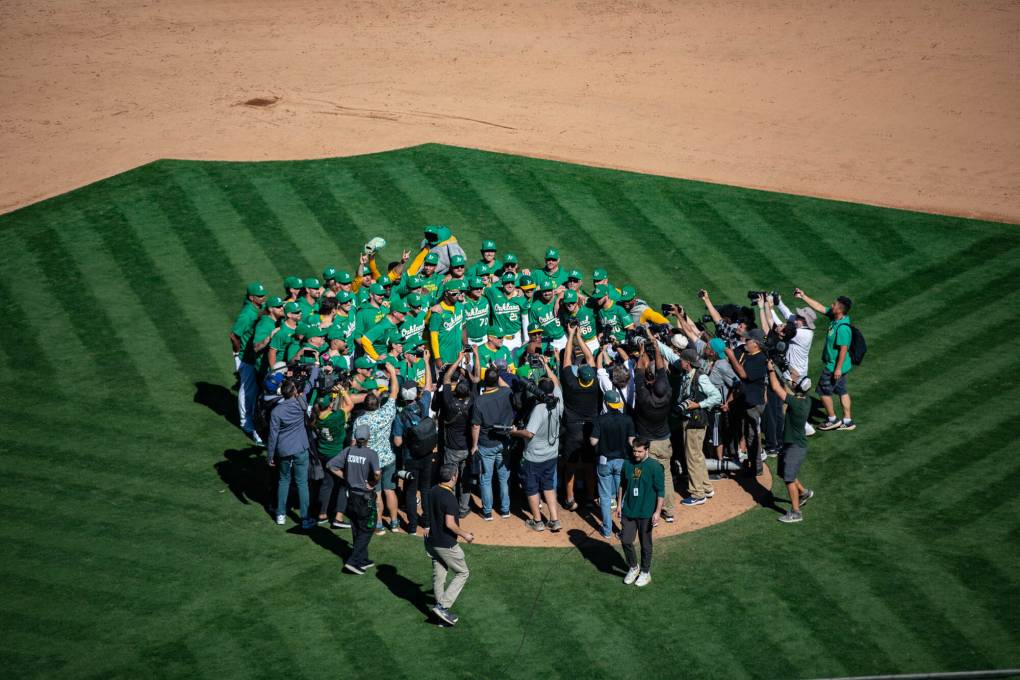
Players took to the field to wave at fans at the sold-out stadium as Athletics manager Mark Kotsay addressed the crowd:
“Thank you for your lifelong support of the Oakland A’s,” Kotsay said.
“We’ve played our asses off this year. We still got three left, gentlemen. I think we all should pay homage to this amazing stadium that we have had the privilege to enjoy for the last 57 years. And I ask you for one more time to start the greatest cheer in baseball. Let’s Go, Oakland!”
Disruptors charge the field
Two people who ran onto the field during the top of the ninth inning were taken away by security. A smoke bomb was also thrown onto the field and removed.
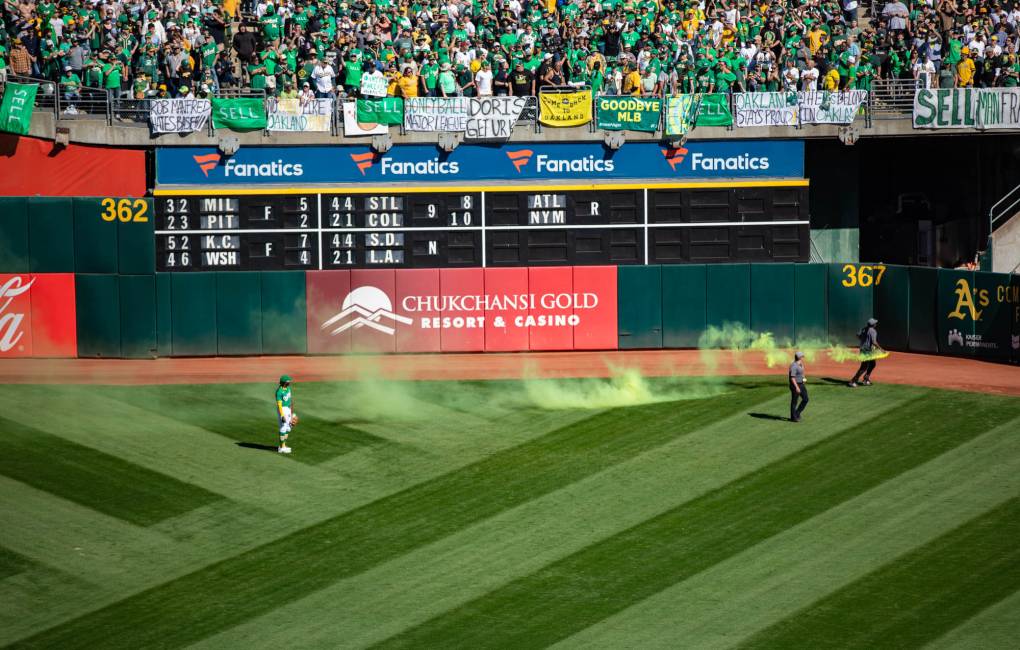
Tensions and emotions are running high as the end of the game draws closer. The Oakland A’s lead the Texas Rangers 3–2.
At the 7th inning stretch, A's still in the lead
The A’s 57-year run at the Oakland Coliseum is coming to a close with just two innings left in the game, which the Mercury News reports is being watched by the largest crowd for a final home game in Major League Baseball history, with 46,889 fans cheering on their Athletics one last time.
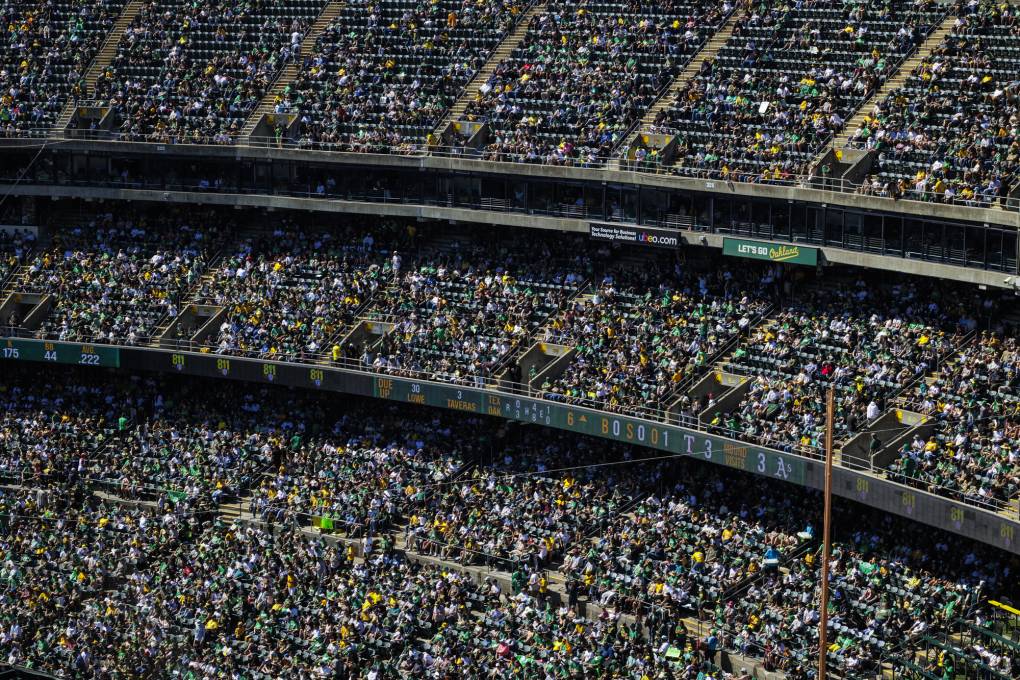
After the A’s powered up to a 3–0 lead in the fifth inning, the Texas Rangers clamored back with two runs to close out the sixth inning 3–2. JJ Bleday helps the A’s hold onto their lead at the top of the seventh with a diving catch in the outfield. After the seventh-inning stretch and one last rendition of “Take Me Out to the Ball Game,” chants of “Sell the Team” and profanity-laced chants directed at A’s owner John Fisher filled the stadium.
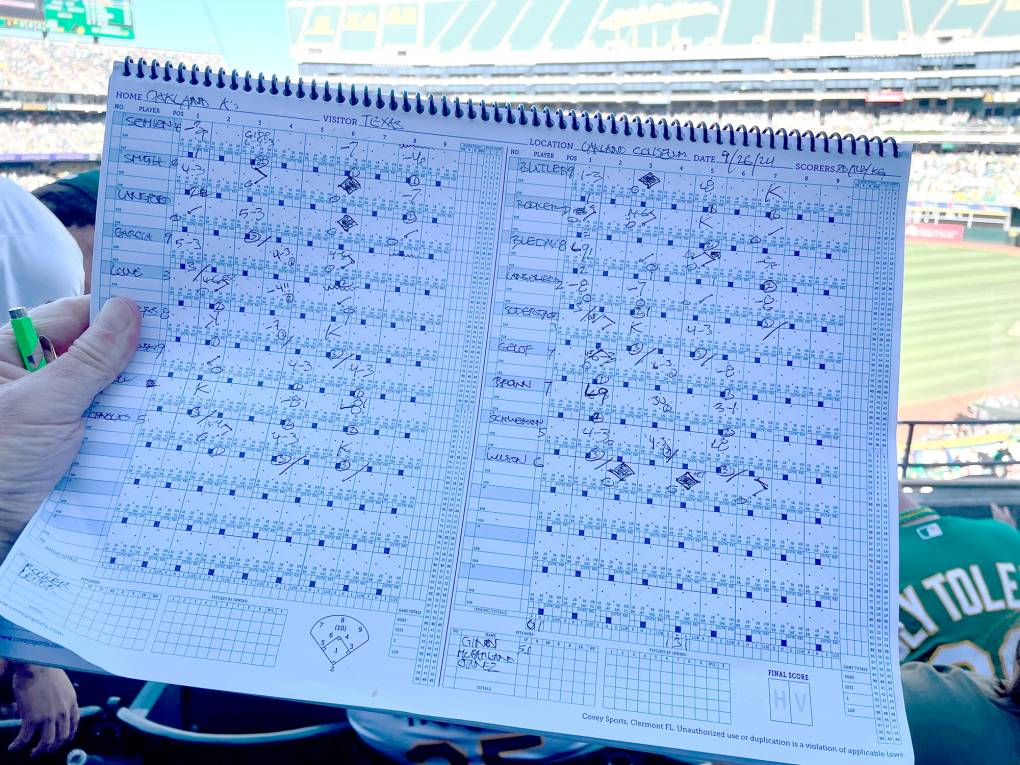
‘A battle and a funeral’ — piping for the A’s
Saddled with a green and gold bagpipe, Andrew Johnstone played an ode to his favorite baseball team with “Take Me Out To the Ball Game” at a parking lot tailgate at the Coliseum.
“We always play the bagpipes going into battle and at funerals, and it’s a bit of a battle and a funeral today, you know?” said Johnstone, who moved to the Bay Area more than 30 years ago.
The Scottish-born A’s fan shared how his family’s tartan colors are green and gold, “perfect for the A’s,” he said. Cheers and tears erupted as he asked fans around him to sing along for another round.
As for the rest of his plans for the day? “Enjoy the game and try to stay sober,” Johnstone laughed. “Let’s get in there and win this bloody thing.”
Fit check: A’s fandom fashion hits a home run(way)
The Coliseum’s famous Brutalist facade became the backdrop for the A’s fashion-obsessed early Thursday before the team’s final game in Oakland. Crocheted hats, hand-made jewelry, autographed sneakers and more made the stadium sparkle with only-in-Oakland flair.
“My whole wardrobe is green and gold. I don’t know what to do!” lifelong A’s fan Jules Hanson said. “This has been such a huge part of my life. I’ve met lifelong friends, and we’ve been through so much together.”
Here’s a peek at what we saw:
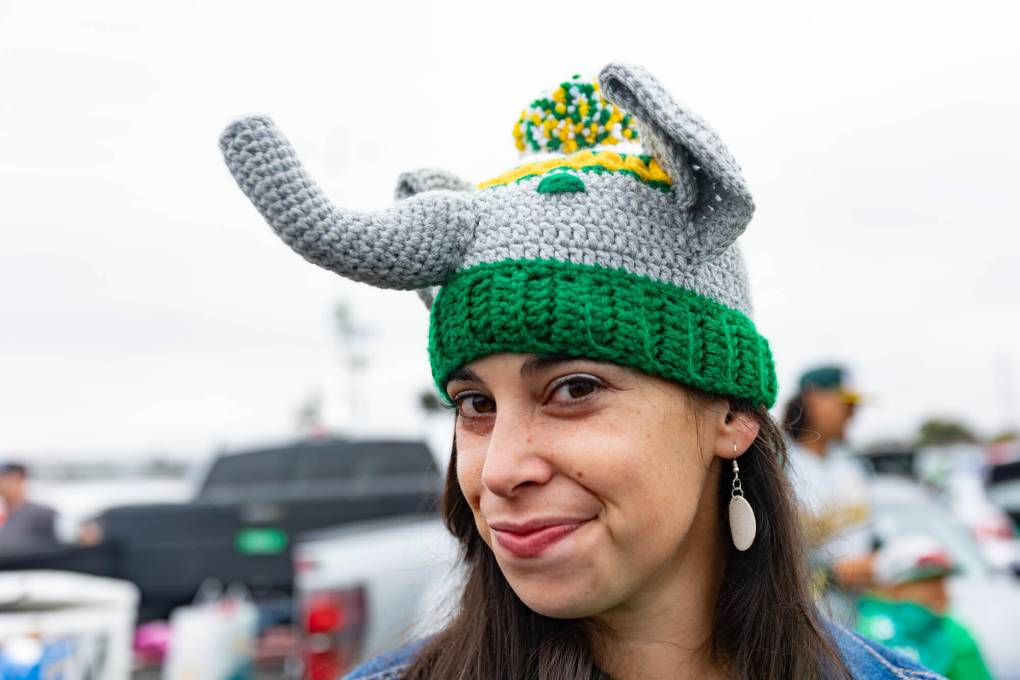
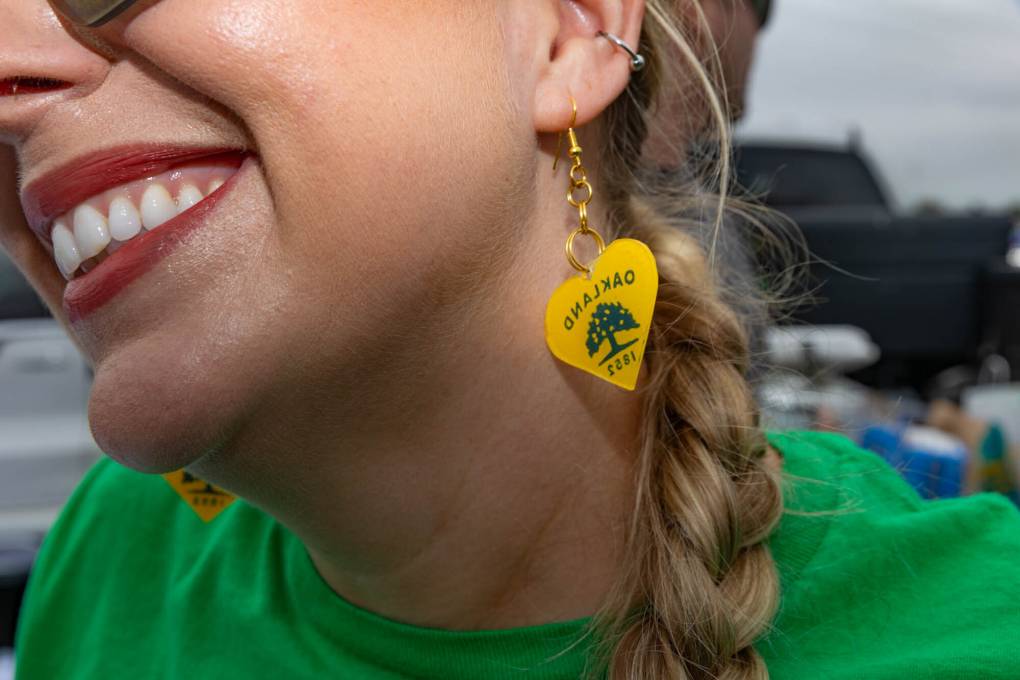
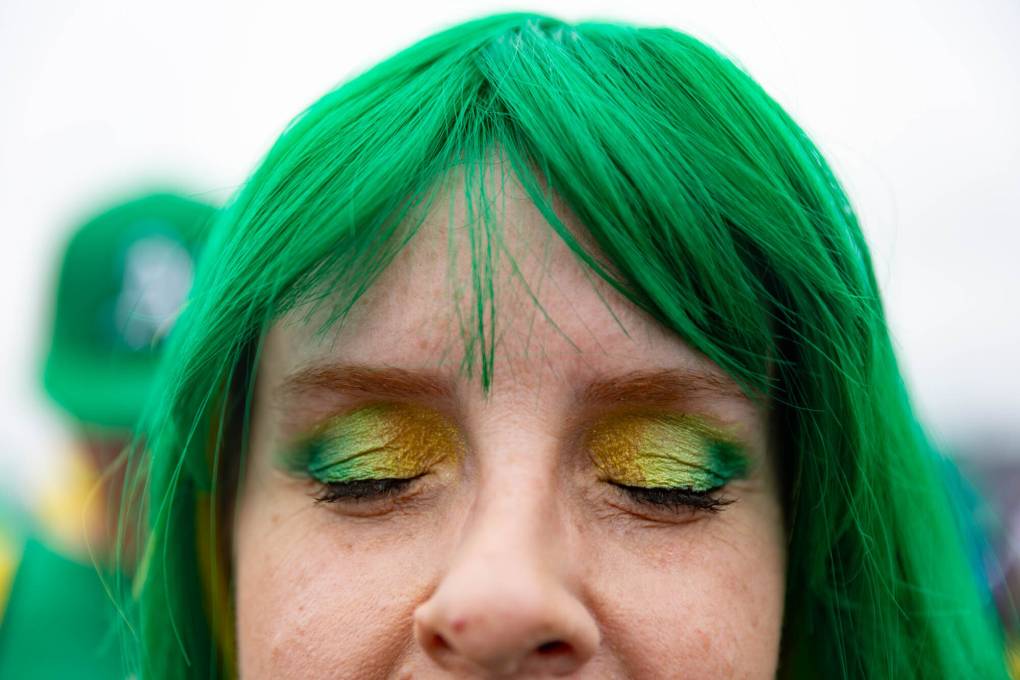
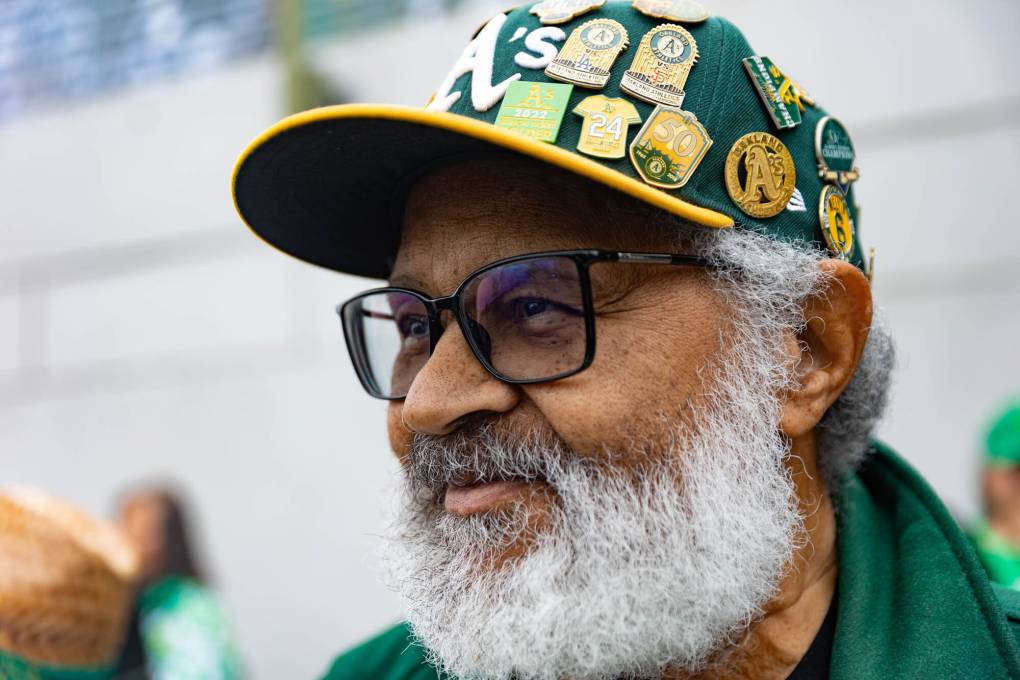
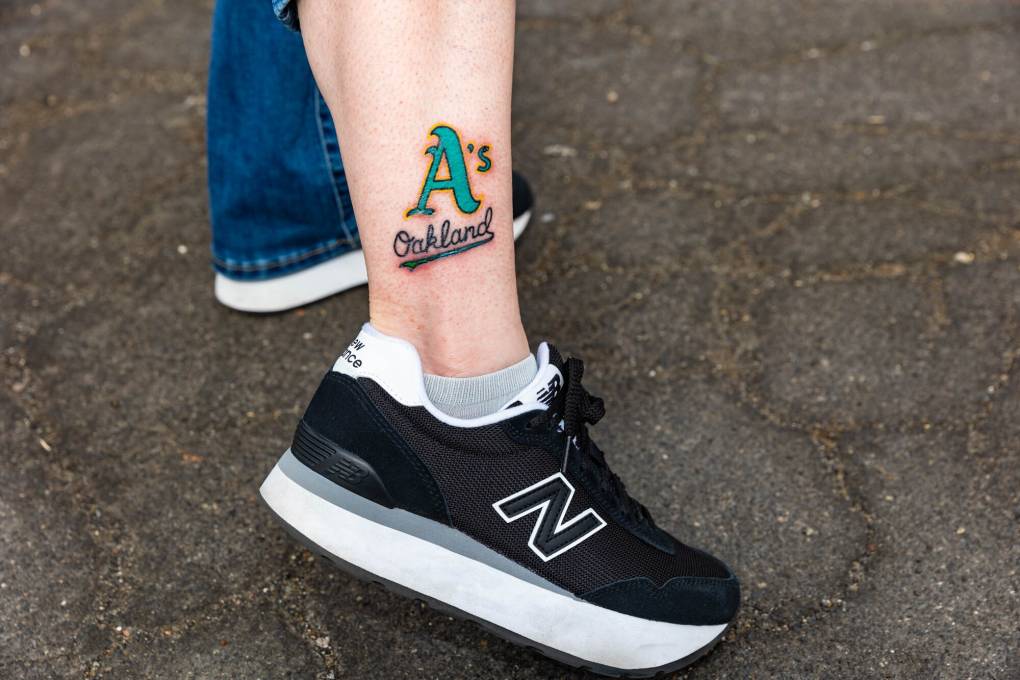
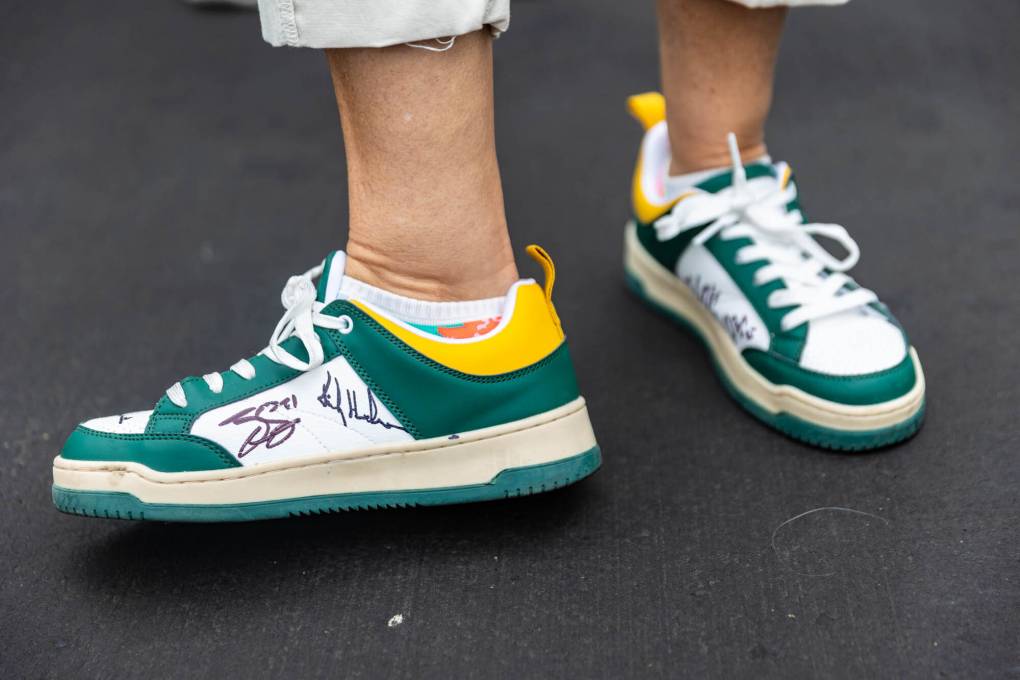
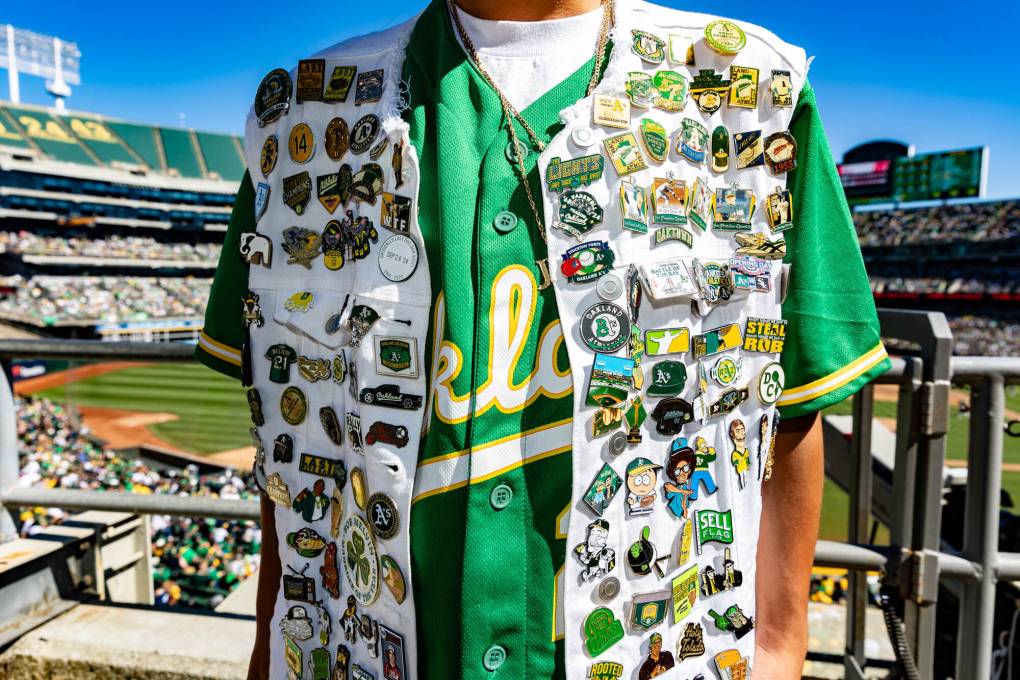
A's fans finally get their flowers — from the mayor of the Oakland Coliseum
Dressed to the nines in a yellow suit, Todd Schwenk handed out yellow roses to his fellow A’s fans before entering the Coliseum on Thursday morning. It’s a regular tradition for Schwenk, who said he’s handed out more than 500 roses at A’s home games this week alone.
“I give them out for free smiles and friends I make on the way,” Schwenk said, noting that the flowers to him represent “love, The Town love, A’s love. And I’m a Deadhead, so the roses go with the music.”
He’s been an A’s fan since 1972 and has been dubbed by some of the stadium ushers as the ‘mayor’ of the Coliseum, where he’s known to wander around throughout games spreading the A’s gospel.
“I feel like a walking history book of the Coliseum, and I just love that,” Schwenk said. “I work the room. It’s full of love.”
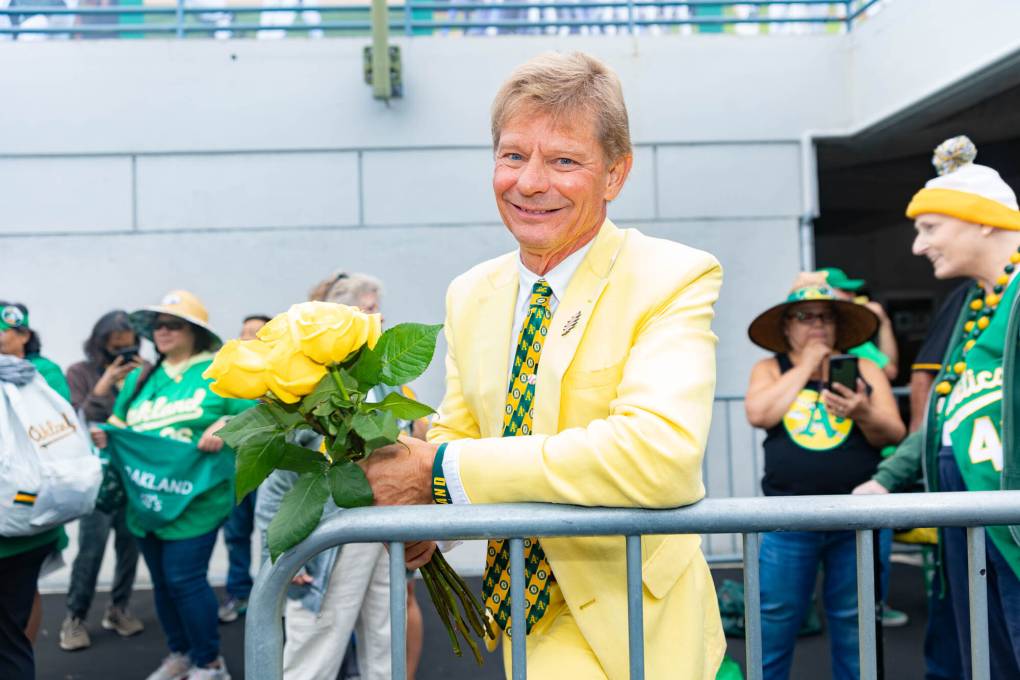
The team is slated to move to Sacramento next year before a permanent move to a proposed ballpark in Las Vegas. But those plans are still in the works. The Mayor of the Coliseum hasn’t given up hope that the A’s could one day play in Oakland again, like at a proposed stadium at Howard Terminal near the waterfront.
“I’ve gone through all the shock, disbelief and I haven’t given up. Vegas is a mirage, and I don’t think MLB will let Sacramento happen. And we keep doing the infrastructure at Howard Terminal,” Schwenk said. “We just need a new owner. We need a new owner more than we need a new stadium. Straight up.”
Today, there is crying in baseball
With the A’s about to play their last game at the Oakland Coliseum, the sold-out ballpark is filled with emotions of all kinds.
Many thousands packing into the old – and beloved – concrete stadium for one last ‘take me out to the ballgame’ likely faced a lot of hurdles just to be here: Higher ticket prices from the A’s, which led to increased resale costs; limited parking or crowded BART trains and platforms; and a first pitch time scheduled during a weekday afternoon, amid many people’s workdays. The stadium parking gates also opened earlier today than normal, anticipating the heavy crowds arriving in the early AM hours.
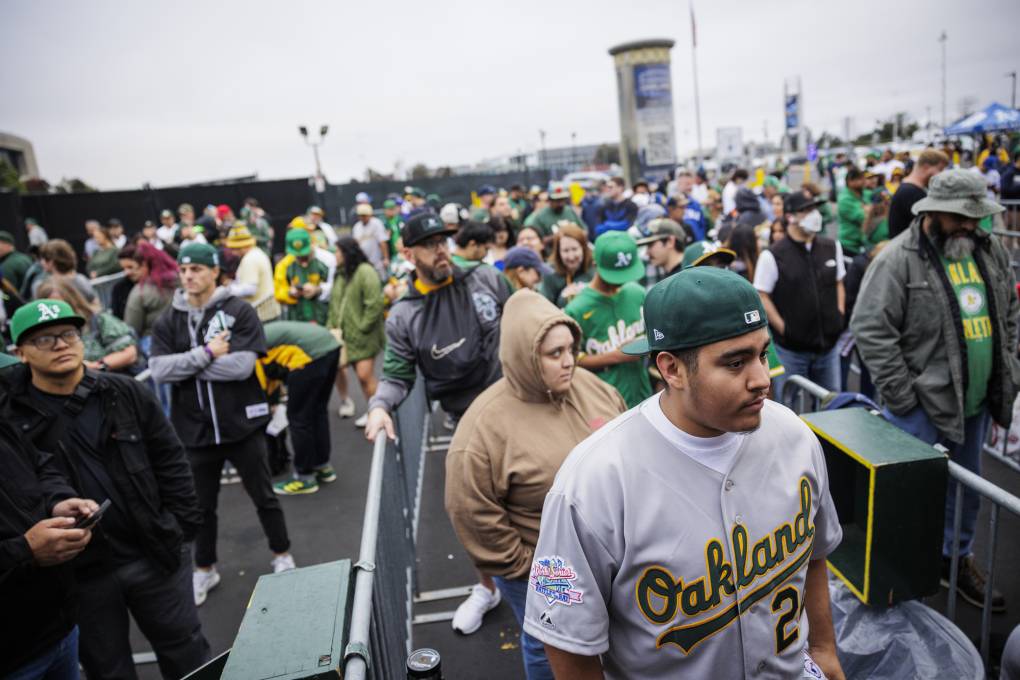
With all those barriers, it’s likely that not everyone who wanted to be here for the last home game made it. Many fans have been attending what have been their own last games at the Coliseum, soaking in one last chance to tailgate, eating a hot dog and drinking a beer and taking in nine innings. Posts all over social media are filled with people sharing photos of themselves at the stadium with friends, family, children and other die-hards, all talking about their memories.
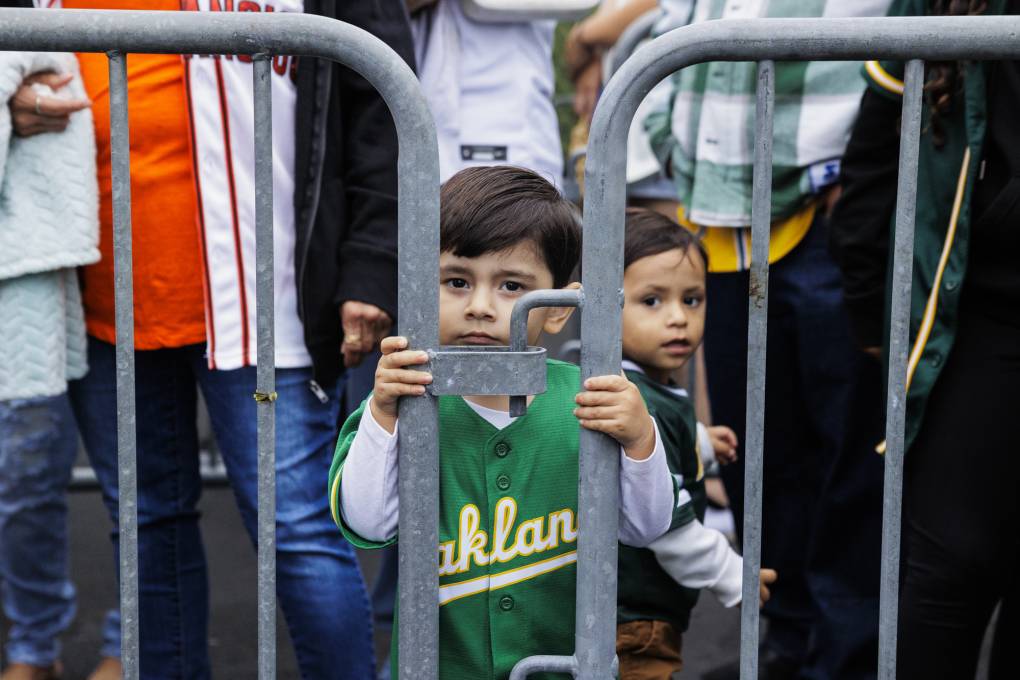
Even as the Yankees swept the A’s in three straight games over the weekend, the focus for many was not about the play on the field but on what will be lost when today’s final out is recorded. There will be no “next season” to look forward to.
I know that I’m not alone in feeling sad, hurt, upset and a range of other things in response to this loss. I know there are untold thousands feeling similarly.
So, we reached out to experts in grief, psychology and sports fandom to explore how and why fans might be hurting and to offer some helpful tips on how you might consider processing the waves of feelings resulting from the A’s being ripped away from Oakland.
For one last time: Let’s Go Oakland!
How the A's played spoilers on their final night in Kansas City
The 13 seasons the Athletics spent in Kansas City were not happy ones. This team was a perennial loser and was mocked as a mere farm club of the New York Yankees as it traded away promising young players to Gotham in exchange for mediocrities.
That changed when insurance magnate Charlie Finley bought the team in 1960. He infuriated the locals with his open desire to move the team elsewhere and made no secret of his intention to relocate the franchise after the 1967 season.
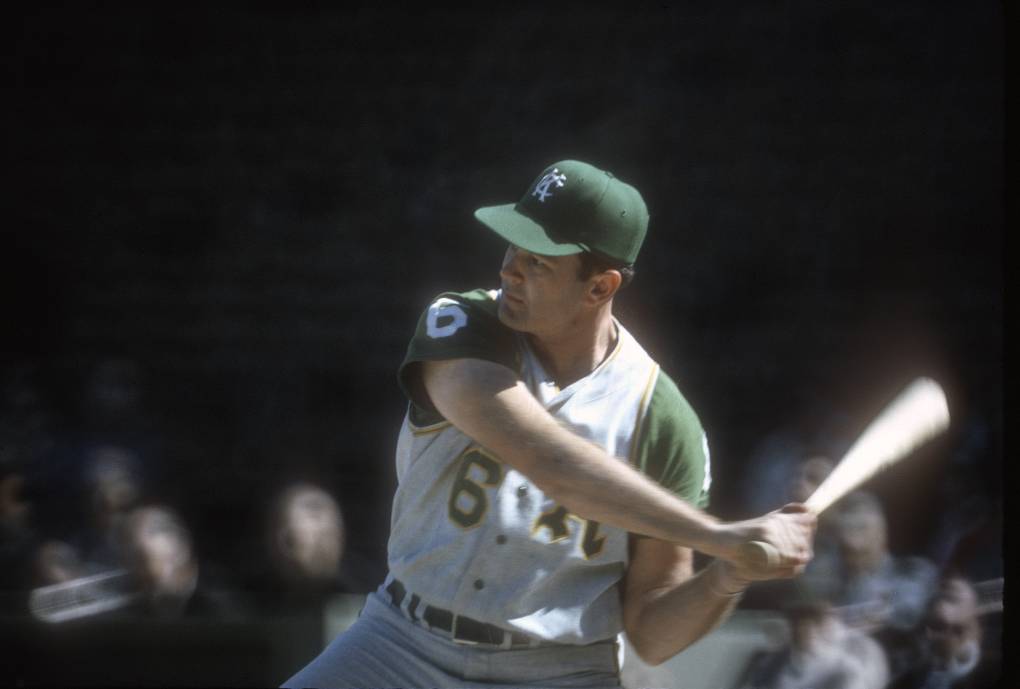
Among Finley’s redeeming qualities was his dedication to developing young talent. By 1967, some of the team’s future stars had begun to emerge, including pitcher Catfish Hunter, shortstop Bert Campaneris, second baseman Dick Green, third baseman Sal Bando and outfielder Joe Rudi.
That talent was on display the night of Sept. 27, 1967, when the A’s played a doubleheader against the Chicago White Sox in their final games in Kansas City.
The White Sox were amid a tight pennant race, and a sweep of the last-place A’s would give them the league lead with just three games to go. Instead, the A’s swept the Sox and knocked them out of contention, with Hunter pitching a three-hit shutout in the nightcap. Attendance for this historic event: 5,325
That last chilly Midwest night stands in contrast to this week’s finale in Oakland. Well — the evenings have been chilly enough, true. But the A’s are drawing big crowds for this farewell series, and just like their Kansas City counterparts, they’re looking for a series win to close their Oakland era.
A's fans descend on the Coliseum from all over
Fans lined up at the break of dawn for the Oakland Coliseum gates to open, and for some, it was a long journey back to the Bay.
A’s fan Lester Hernandez brought his son and two daughters from Miami for the final home game. They arrived at the stadium Thursday at 5:30 a.m., waiting nearly four hours for the stadium’s gates to open at 9:37 a.m.
“I’ve been a fan of the Oakland Athletics for more than 50 years, you know, since they got the championships in 1972, 1973 and 1974,” Hernandez told KQED while waiting in line.
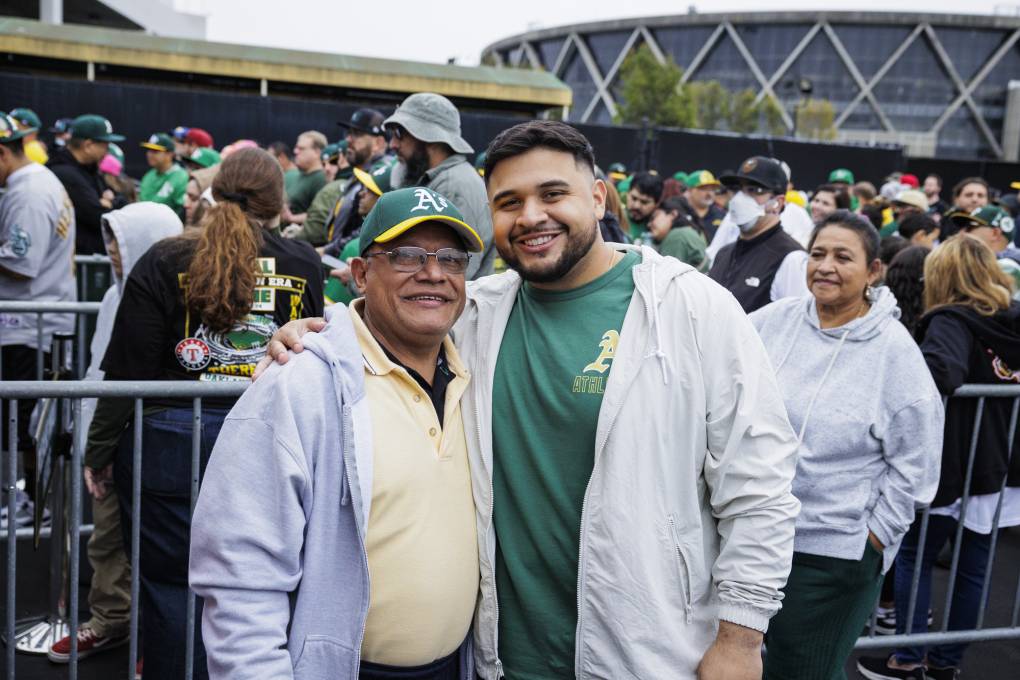
His family made the trip not only to see one of Hernandez’s favorite teams play but also as part of the family’s effort to visit all 30 MLB stadiums.
“I gotta make sure I knock this one off the list,” Hernandez’s son, Lester Hernandez Jr., said. “We came all the way from Miami just to witness this. I’m a big baseball fan, and I feel for the A’s fans, they’re losing a big part of their city.”
Erin Marquez has been an A’s fan her entire life and drove up to Oakland from the Central Valley to salute her favorite team one last time.
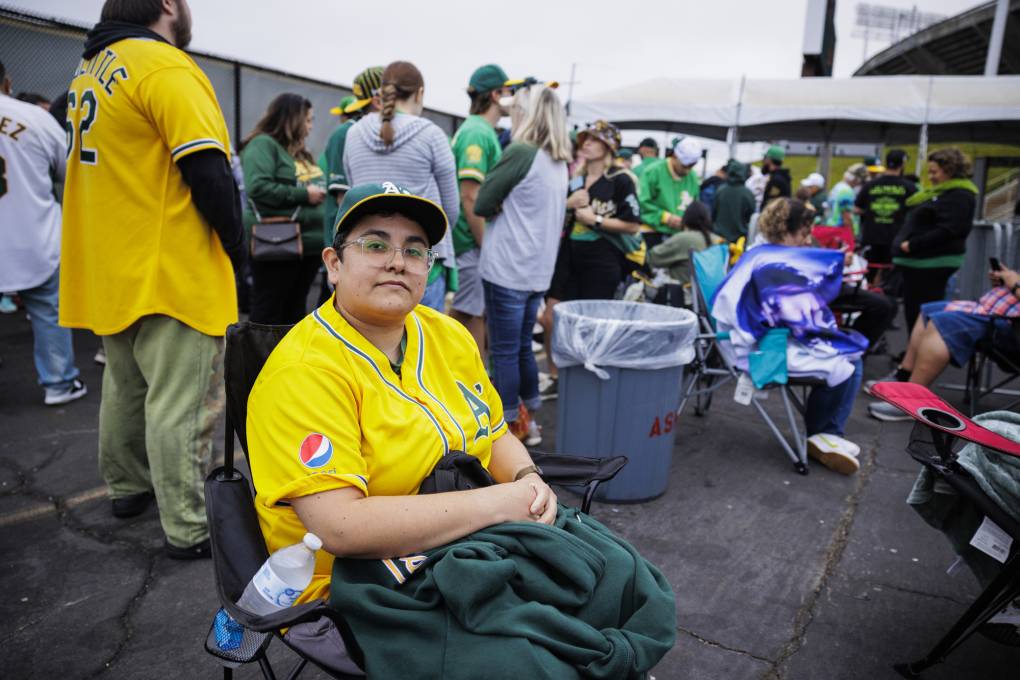
“My dad is a big A’s fan and a Raiders fan, so this is actually really heartbreaking because we lost the Raiders, and now we’re losing the Oakland A’s,” Marquez, who said she was born into A’s fandom, told KQED. “We have a lot of A’s fans in Visalia.”
Debra Piper from Auburn started driving at 3 a.m. to get to the stadium early on Thursday morning.
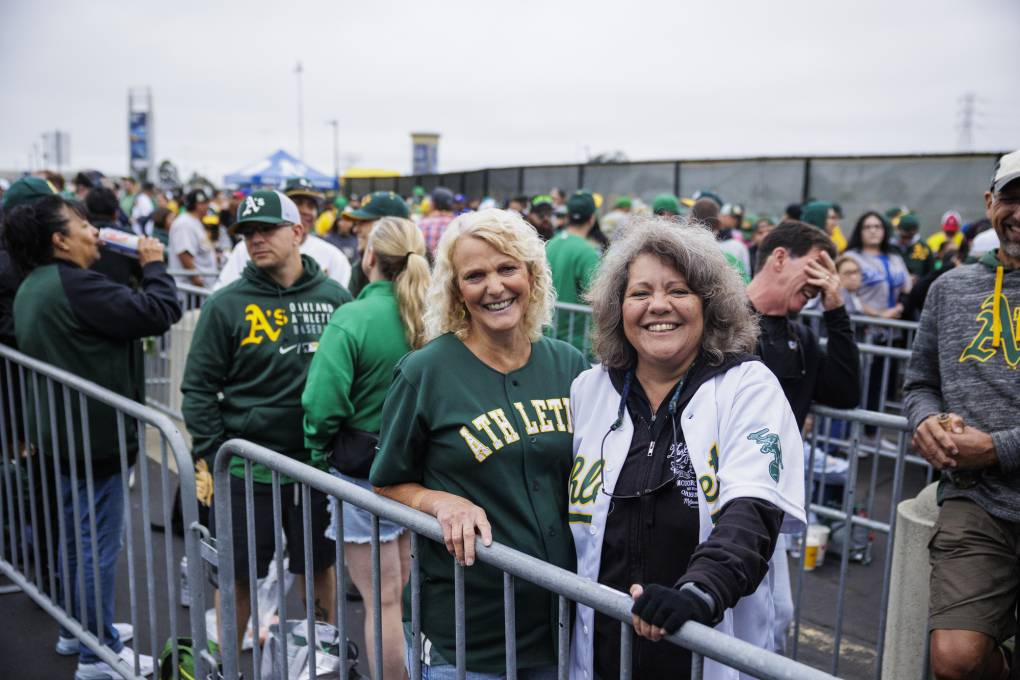
“We’re going to miss them. No matter where they go, they’re still Oakland to me,” Piper said. “I’m going to really start to tear up now. There is so much history, love and support for the community and the players and this stadium. It doesn’t matter how many times you come to see them play; when you go out and see the stadium and smell the grass, it’s just that ‘ahh’ feeling. It’s tingly. And now we don’t have that. There’s nothing like baseball to bring people together.”
A far cry from the A's last day in Philadelphia
The A’s last game at the Oakland Coliseum, with an emotional sell-out crowd expected, couldn’t be more different from the team’s finale in its original hometown, Philadelphia.
That game took place on Sept. 19, 1954, against the Yankees, at a moment the team was in deep financial trouble and was headed for another in a long series of poor finishes.
Although the A’s pleaded with fans for much of the season to come out to Connie Mack Stadium to help prevent a sale of the team and possible relocation to another city, fans stayed away.
“I think what the A’s failed to realize was that baseball fans are not customers,” Philadelphia baseball historian Bob Warrington says. “They’re fans, they’re supporters. And you can’t threaten them into coming to the ballpark by saying, ‘If you don’t come, you know, we may not be here next year.’ You’ve got to encourage them to come.”
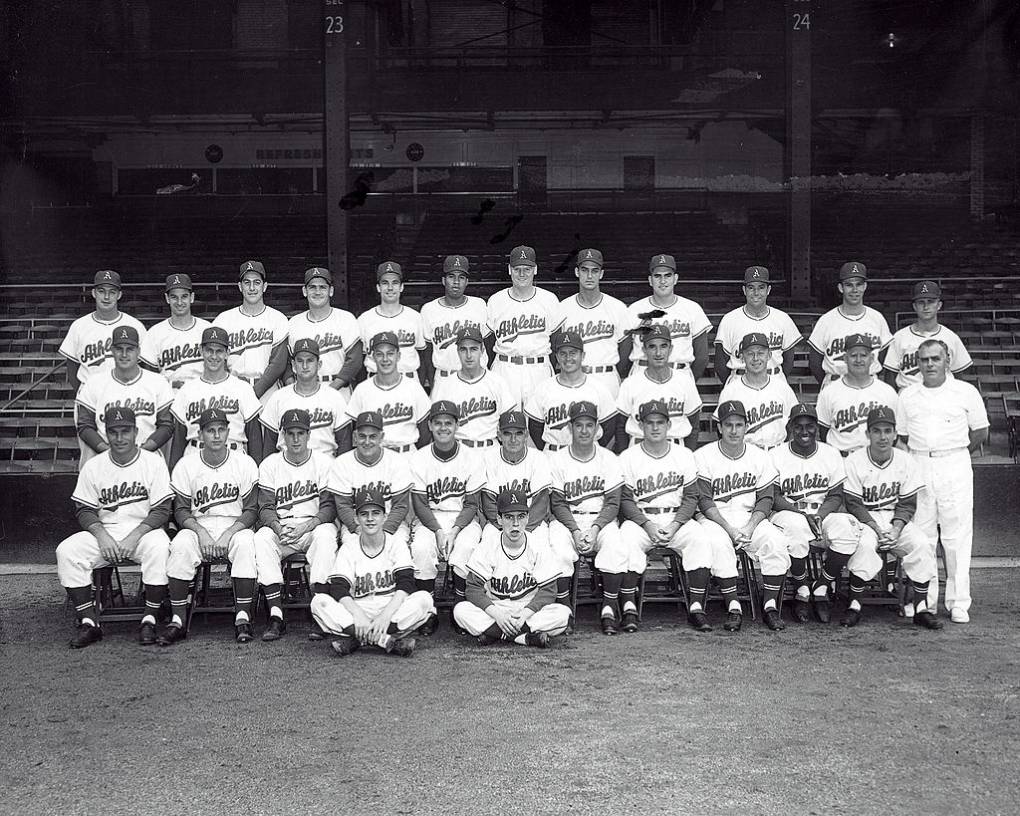
On an overcast Sunday afternoon, the Athletics took on the New York Yankees in their last home game of the season. The ballpark was virtually empty, with just 1,715 people in the stands to see the A’s lose 4–2.
Within two months, the team had been sold to a new owner who quickly got American League permission to move the team to Kansas City. The A’s 54-year Philadelphia era was over.
A’s departure a double whammy for Coliseum workers
For the hundreds of workers it takes to put on a baseball game at the Oakland Coliseum, today is a double whammy — a loss of vital income and their favorite team.
Bob Rosenthal, a lifelong baseball fan and a merchandise vendor at the Coliseum, said he likens working during A’s games to “getting paid to eat candy.”
“If I wasn’t doing it, I’d probably be going to the games and spending money,” said the 73-year-old, who has worked at the Coliseum since the first A’s game there in 1968, when the team moved to Oakland from Kansas City. “I figured I might as well work there and get paid for what I do.”
Despite his sunny disposition, he said the last few weeks have been “heart-wrenching.”
“It’s basically cutting out 50 percent of my salary,” said Rosenthal, who also works a similar gig at San Francisco Giants games. “I’m not going to be able to go on vacations like I used to.”
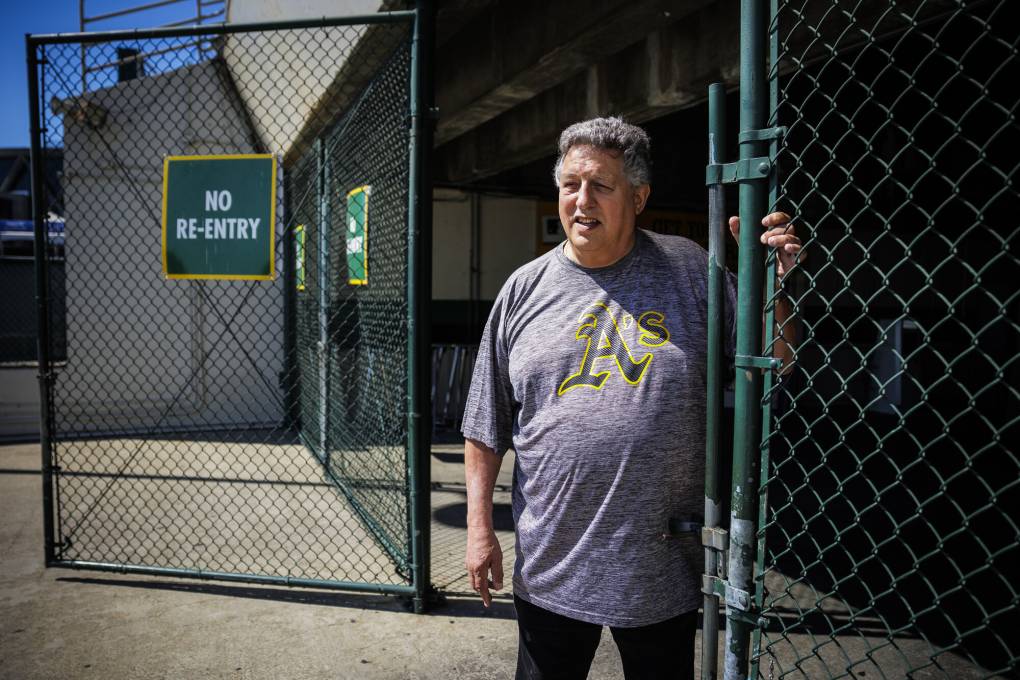
Workers face different outcomes once the Coliseum shuts its gates to the A’s partly because of the patchwork of employers there — the team itself, third-party contractors for things like security, and food service giant Aramark, which employs cooks, bartenders and food servers. Some employees have union representation and some do not.
“Besides the place where I live, the place where I have spent the most days of my life has been at the Oakland Coliseum,” said David Feldman, who grew up in Walnut Creek and has worked on the A’s television broadcast crew since 1991. “ I think it’s hard not to become a fan if you’re here every day.”
Fans bid goodbye to Oakland A's at last home game
After years of will-they-won’t-they leave the East Bay, the Athletics are playing their last home game at the Oakland Coliseum today.
For longtime A’s fans, it’s a somber end to an era for professional baseball in Oakland.
“A lot of people are going to be sad. We have a proud history here. We’re the home of a lot of very important sports figures, including Kurt Flood, who changed baseball forever, and Reggie Jackson, all these people,” former Oakland Mayor Jean Quan told KQED. “And my children grew up at the A’s games. So we’re sad.”
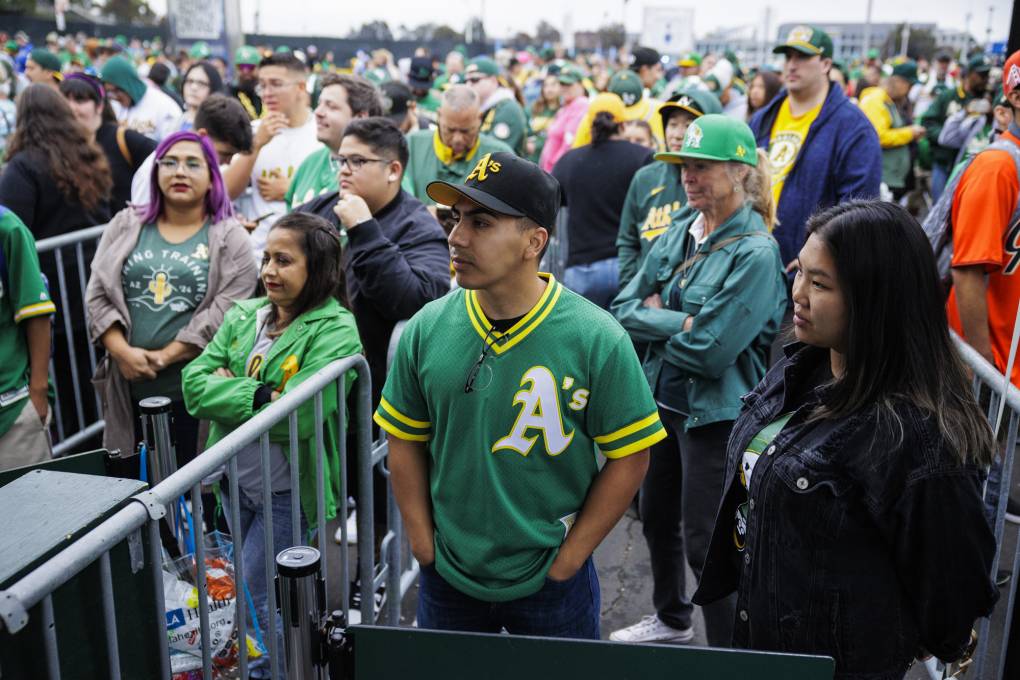
It’s not the first time A’s fans have faced potentially losing their team. During her stint as mayor from 2010 to 2014, Quan fought to keep major sports teams in Oakland. But those efforts only delayed the outcome fans are mourning this week.
“We were really disappointed when basically the A’s, despite all the work the city had done and the grants we had lined up, would like to go to Vegas where they could get more money,” Quan said.
Employees are not only grappling with the loss of a favorite sports team but also their livelihood.
“You have people that are in their 40s and 50s, and this is a big deal. They’re losing half their income because they work here,” said Rick Cowell, who is now retired after years of selling merchandise at the Coliseum. “For them, it’s a big cut in pay.”
Today, fans are wiping their tears momentarily to celebrate one last home game and share memories from past games and seasons.
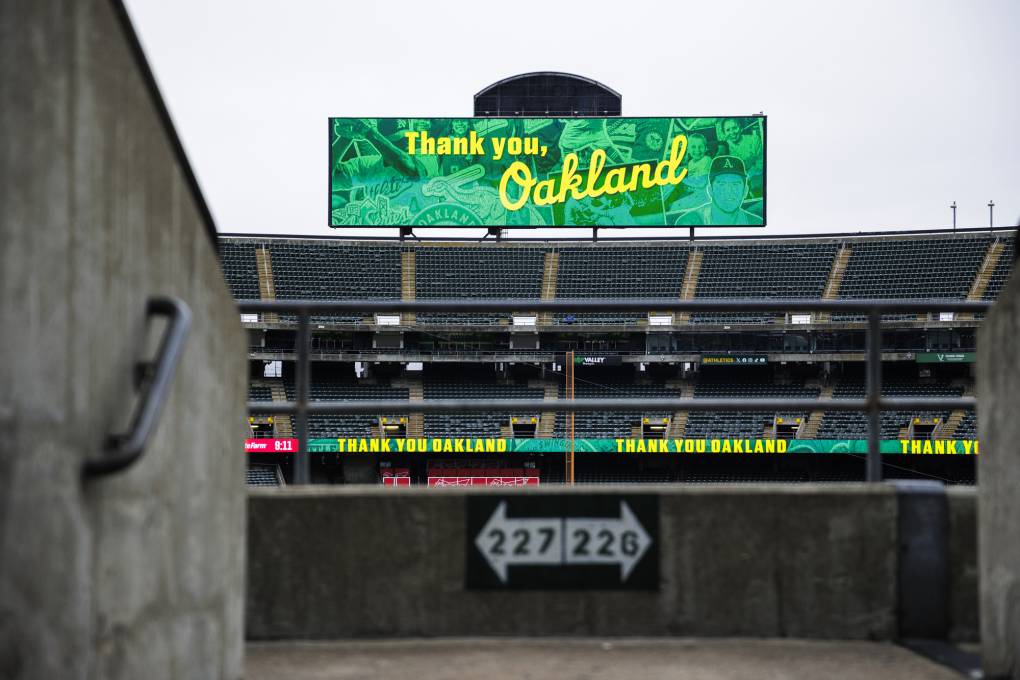
“For me, my number one memory was the last home game of the 2000 season,” said David Feldman, who worked the A’s score box. “The A’s needed to win to avoid going to a make-up game in Tampa Bay. If they won, they’d go straight to the playoffs. And this place had 50,000 people. Tim Watson was on the mound. Shutout. Clinch the West. It was just an amazing day.”
The A’s departure marks the loss of the last professional sports team in Oakland after the Golden State Warriors moved to San Francisco and the Raiders left the Coliseum for Las Vegas. But many fans are now rallying behind new teams, including semi-professional soccer teams like the Oakland Roots and Soul and the Oakland Ballers, an independent baseball team that joined the Pioneer League this year.
“I’m very happy that the Oakland Roots and Soul maybe will get a bigger share of our entertainment more than in the past, and I think our Pioneer League team will continue to see thousands of local fans,” Quan said. “We have that same spirit and real love of sports.”